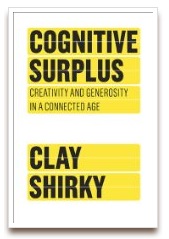Yesterday I created a Facebook account. This is the third, possibly the fourth, time I have attempted Facebook. I say “attempted” because I have never quite “gotten” Facebook. I think I understand social networks as well as the next person but this platform has just never been a good fit for me. So why give it another shot?
A couple of reasons. One, I’d like to better understand why FB is home to half a billion people around the world. Two, social networking has become a bigger part of my job and I can’t properly support clients without a feel for Facebook.
Connecting and communicating with people you know seems to be at the core of Facebook. I send you a “Friend Request” and, if you accept it, I can see some for all of what you’re doing on Facebook, depending on how you have your privacy settings configured. If you don’t accept, I’m blocked.
I’ve had lots of conversations with Facebook users in an effort to understand it (without actually using it). A common theme goes something like this:
Jane is miffed that Bill refused to accept (or ignored?) her friend request. He doesn’t want her to be part of his online life and she’s not happy about it. She thought they were, well, friends.
In the next breath, Jane is explaining why she is getting creeped out by the co-worker who keeps sending her friend requests. The irony is completely lost on Jane.
Some Facebook users deal with this by just accepting all friend requests and ignoring the stuff from the not-really-friends. Others just ignore the requests.
I don’t plan on spending any more time on Facebook than is necessary to understand how it works. I’ll auto post from my blog, YouTube, Twitter and all the rest. So, there will be no shortage of stuff on my “wall,” but it all originates from somewhere else where anyone can see what I’m up to. But that’s clearly less convenient that seeing all within the Facebook compound.
How will I handle “friend” requests (assuming I get any)? I’ll probably ignore them unless we already have an online connection (and I probably won’t give you a kidney, either).
So I’m headed off to Facebook with the same enthusiasm as for my first boy-girl dance party mom made me attend (on Bill Wicker’s patio). I didn’t dance there either.

